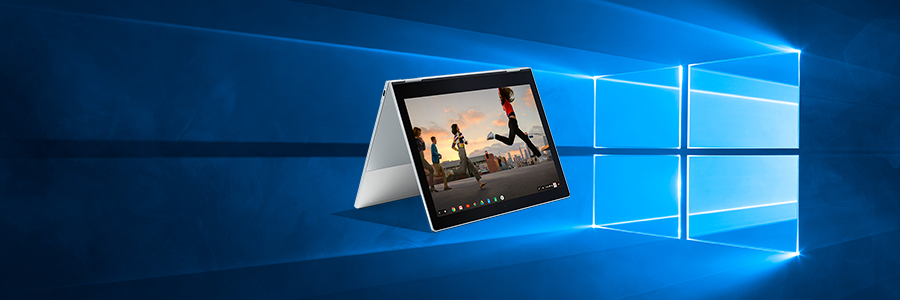Everything we know about Campfire, Google’s secretive project to get Windows 10 running on Chromebooks. Since first reporting on Windows 10 capabilities on the Google Pixelbook, we’ve been closely tracking development to understand what’s going on behind Google’s doors. We've since found evidence that "Campfire" may be the Chromebook equivalent of Apple's Boot Camp.
Earlier this year, a mysterious project appeared on the Chromium Git. The Chrome OS developers had created a new firmware branch of the Google Pixelbook called eve-campfire and were working on a new “Alt OS mode” for this branch. We have since confirmed this Alt OS refers to Microsoft Windows 10 and found evidence that it wasn't just an internal project but intended for public release.
It's been a few weeks since our last feature, we've got more interesting details to share.
The Google Pixelbook won’t be the only Campfire-enabled Chromebook
It would be fair to say that Alt OS and Campfire won’t make it to the hundreds of Chromebooks out there, but developer time would be wasted if this was only destined for the Google Pixelbook. Mentions of multiple “campfire variants," and changes merging into the master branch instead of device-specific branches indicate that the Google Pixelbook won't be the only Chromebook with Campfire support. However, given that support means putting devices through added testing and configuration, it could be limited to select Chromebooks—perhaps only new devices, or even only to Google-branded devices. It's too early to tell.
Campfire won’t require enabling Developer Mode in Chrome OS
Dual-booting other OSes on a Chromebook traditionally requires enabling Developer Mode, an inconvenient yet powerful mode on Chrome OS that makes your Chromebook wipeable at the tap of a spacebar every boot. Unfortunately, enabling Developer Mode also renders your Chromebook less secure by disabling features like Verified Boot. As dual-booting on a Chromebook will be supported directly by Google, enabling Alt OS mode and booting into Microsoft Windows 10 won’t require Developer Mode.
Setting up Campfire to dual boot Windows 10 is seamless
The developers have reworked the way in which they distribute updates to a rarely-used section of ROM on Chromebooks called RW_LEGACY. The RW_LEGACY section on a Chromebook's ROM traditionally gives users the ability to dual-boot into an alternative OS, but it is something of an afterthought during production and the section is rarely updated after a device leaves the factory. Now, with Campfire, Google will push signed updates to RW_LEGACY via the regular auto-update process, so firmware flashing won’t be a concern for Joe Public. A recent commit for enabling Alt OS through crosh with a simple [alt_os enable] command indicates that it will be a fairly easy setup process from the user's end too.
Campfire is closer to release than you think
Campfire and Alt OS mode are visibly incomplete at this stage with no UI changes to speak of. However, the developers have been pushing fairly hard to get changes merged sooner rather than later, indicating a tight timescale on Chrome’s roadmap. Google’s hardware event is just around the corner, with rumours of a Google Pixelbook v2 featuring alongside the heavily leaked Google Pixel 3 and Google Pixel 3 XL. It would be reasonable to expect an announcement or demo at this event, even if the full functionality isn't ready yet.
Campfire will take up a sizeable chunk of your storage
If you were holding out hope that your 2013 Acer C720 would somehow receive support, 16GB of storage isn’t going to cut it. A recent comment and the crosh source code suggests that the minimum storage requirement will be 40GB (30GB for Windows and 10GB remaining reserved for Chrome OS), which puts this out of the realm of possibility for most Chromebooks with soldered eMMC.
Campfire introduces an exciting new dynamic to Chrome OS that we've never seen before. If you were to suggest Google-backed Windows 10 dual boot on Chrome OS a year ago, you'd be laughed out of the room. Buy a Chromebook and don't like the software? Tough luck, you're stuck with it unless you want to jump through many technical hoops. Put that in light of Apple's Boot Camp and Google looks positively prickly.
Whether you’re a Chrome OS fan or not, safe and easy dual-boot is a clear win for consumers—something that Google sorely needs to demonstrate after their €5 billion anti-trust fine last month. Painless dual-boot would also give users a way to continue using their device safely beyond Google's arbitrary 6.5-year EOL milestone—a better outcome than landfill for perfectly functional hardware. Whatever the motivation, Google has our interest piqued, and we'll continue to follow Campfire and Alt OS throughout development.

